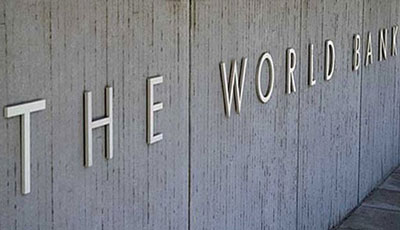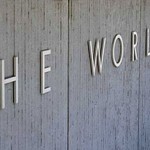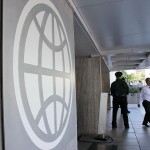World Bank shake-up yields only half Kim’s target of $400m savings

The World Bank is set to make net savings that are half the size of a much-touted $400m target as administrative costs rise on a surge in lending, despite a contentious reorganisation pushed through by Jim Yong Kim, its president.
The World Bank’s revenues are coming under pressure from low interest rates and a slowdown in emerging economies, with leading parts of the bank this month reporting their weakest results since the 2008 global financial crisis.
The difficult financial picture illustrates the pressures facing Mr Kim as he seeks a second five-year term and continues a push both to reinvent the Washington-based institution and aggressively increase its lending in the face of rising competition from new players.
Mr Kim, who with the backing of big shareholders such as the US and China is widely expected to be reappointed within weeks, has staked his presidency on a controversial reorganisation of the bank. A $400m reduction in costs by the end of the current fiscal year is one of its main goals.
Frustration with the restructuring led the bank’s staff association to declare it was facing a “crisis of leadership” this month and to call for the board to search for a replacement to Mr Kim.
Senior bank officials insist that the restructuring and the gross savings goal of $400m remain “on track” and that the bank’s budget will become self-funding by 2018 despite being some way from that now. But they also concede the cost-cutting exercise has undergone adjustments.
The bank’s board in June approved a $62m, or 15 per cent, adjustment to the target to accommodate costs associated with a surge in lending, according to a senior bank official. The board also previously approved the “reinvestment” of $143m in cost reductions, meaning that the net savings from the exercise are likely to be less than half the $400m headline when it is completed.
The shift has come alongside new financial statements that show two of the bank’s biggest component parts have seen their bottom lines hit hard by global economic conditions.
The International Finance Corporation, the bank’s private-sector arm, in the fiscal year to June reported its first loss since the depths of the 2008 crisis largely as the result of a hit on equity investments in emerging economies. Likewise, the biggest of the World Bank’s five component institutions, the International Bank for Reconstruction and Development, in the last fiscal year reported its lowest “allocable income” — or bottom-line figure — since the crisis, largely because of lower returns from the investment of its own equity.
The World Bank’s aim is not to make a profit, bank officials point out, but to help client countries navigate economic challenges, such as the collapse in commodity prices that has hit some of its biggest borrowing countries in recent years.
But at the IBRD the hit to revenues has also been accompanied by a significant increase in staff and other costs, its results show, raising questions over how much its cost trajectory has changed.
In the year ended June 30 staff costs at the IBRD, which focuses on lending to middle-income countries, reached a record $915m, a 17.5 per cent increase over the past two years.
Those were offset by lower costs at another of the bank’s component institutions, the International Development Association, which focuses on lending to the world’s poorest countries. But bank officials also expect the costs to rise at the donor-funded IDA, for which Mr Kim is now lobbying for a big increase in funding in the near future.
They also attribute many of the rising costs to the growing use of donor-funded trust funds aimed at specific issues or regions, which accounted for more than $500m of the IBRD’s $2bn in administrative costs in the year to June.
The cost pressures highlight the dilemma facing the bank and Mr Kim as shareholders ask it both to save costs and respond to competition from new players such as the China-backed Asian Infrastructure Investment Bank, said Robert Kahn, senior fellow for international economics at the Council on Foreign Relations.
“It is a sprawling institution whose costs are growing,” said Mr Kahn, a former senior official at both the US Treasury and the World Bank. “We should not kid ourselves that we are ending up with an institution that is leaner and meaner.”
To critics they also point to what they see as Mr Kim’s lack of a clear strategy and the fact that even as he has taken the bank into new areas such as responding to pandemics he has avoided deciding what the bank should stop doing.
“His announced cuts were always fictional . . . And he has been basically flailing about to come up with a way of meeting those . . . notional targets without taking hard decisions,” said Lant Pritchett, a former World Bank official who now teaches at Harvard’s Kennedy School of Government.
Source: Financial Times


























